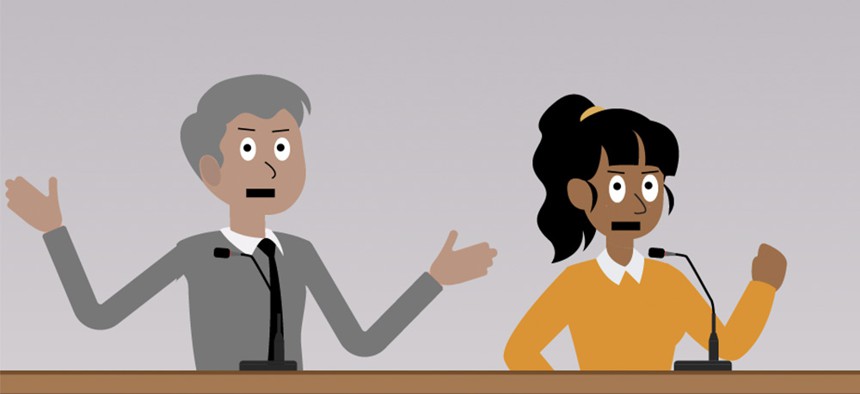This is how ‘Sue’ will beat her landlord in New York City housing court
Tenants have some options when fighting landlords in Housing Court – as a woman named ‘Sue’ shows.

People in Housing Court Zach Williams
For many New York City tenants, Housing Court is a place to avoid.
It’s a place where the advantages tend to fall in the landlords’ favor. They have the resources to pay for legal representation while a tenant typically does not. And a lack of familiarity with the legal nuances of housing court trials places tenants in a vulnerable position as they get ready to plead their case and try to protect their homes in crowded courts in every borough.
The Brooklyn court by itself handled about 69,000 cases last year. Fake documents, legal shortcuts, financial settlements and tenant intimidation all can play a role in driving more and more low-income residents out of their apartment through court orders. While the pace of evictions has slowed in recent years, there were still about 21,000 citywide last year, according to a May 20 report in The New York Times.
New York’s Housing Court was established in 1973 to help tenants secure building repairs – and it can do that, along with ordering the payment of rent and either greenlighting or reversing eviction efforts, but the power imbalance is obvious, according to Judge Jean T. Schneider, the citywide supervising judge for housing court.
“It has always been the single defining thing about housing court since it was created, to try to create justice when most of the people on one side were represented and one side was not,” Schneider told the Times.
But that does not mean that tenants are defenseless in their struggles with landlords. Resources from the city and nonprofits can guide tenants. Plenty of nonprofits engage help tenants with various issues related to housing – including the process of defending their home.
The nonprofit Housing Court Answers offers a step-by-step explanation – here's another one – of how the court process works and what tenants should do. The city Human Resources Administration offers an emergency loan program. And an increase in city support will put more attorneys at the disposal of low-income tenants in the years to come, helping about 400,000 tenants annually by 2022, City Limits reported.
In the meantime, organizations like the Legal Aid Society represent about a quarter of tenants, a dramatic increase from past years when nearly all landlords had legal counsel against 1 percent of tenants, according to the Times.
The following video shows a hypothetical case involving a woman named Sue. While her situation is different from many in Housing Court, her response can serve as a good example for all tenants.
A little preparation before court and some knowledge of the legal nuances made the difference for Sue, as it can for many tenants who enter court with the confidence to make their case.